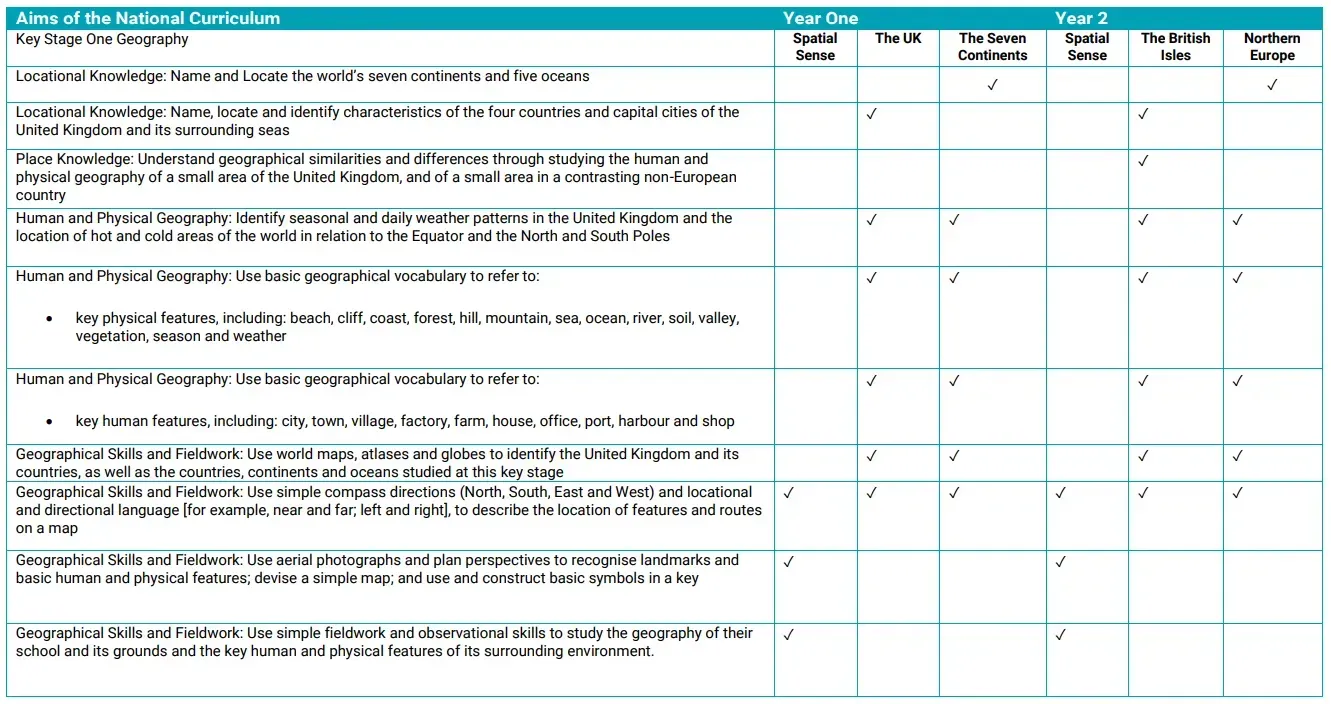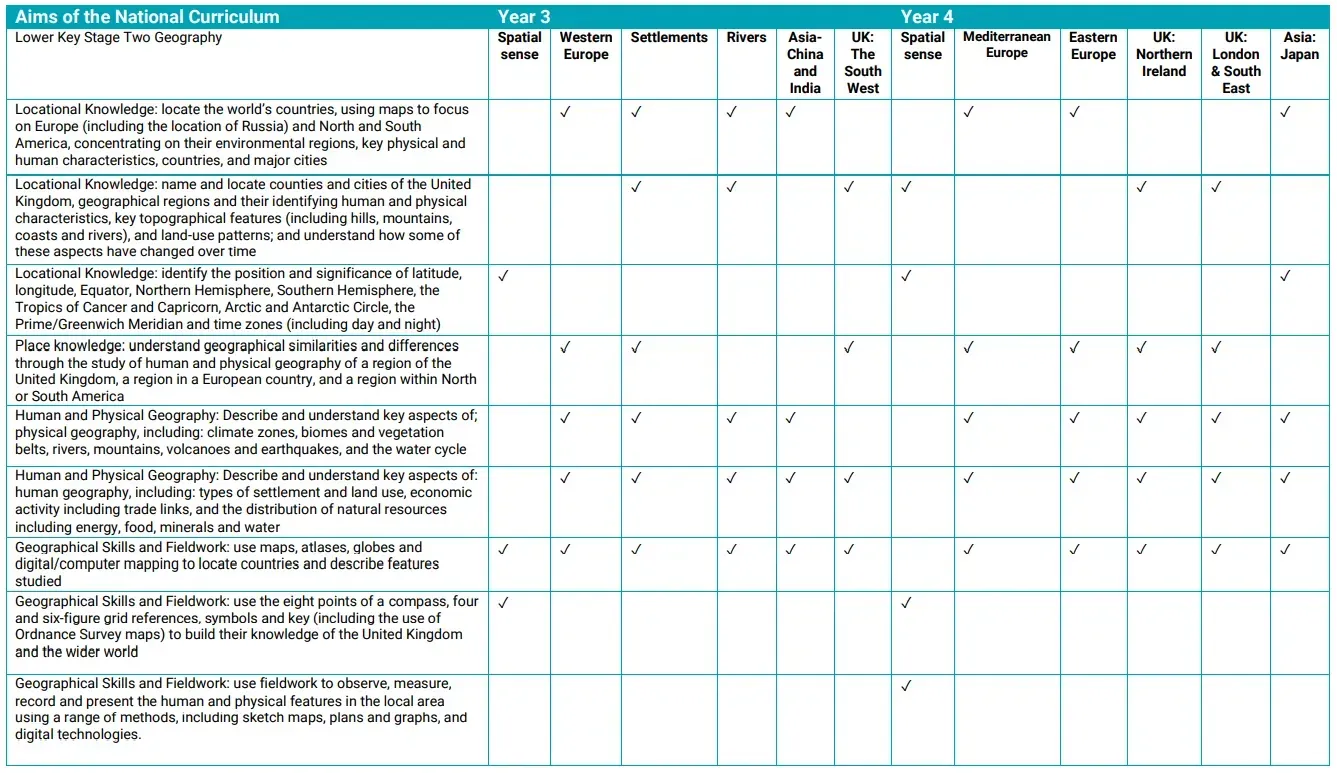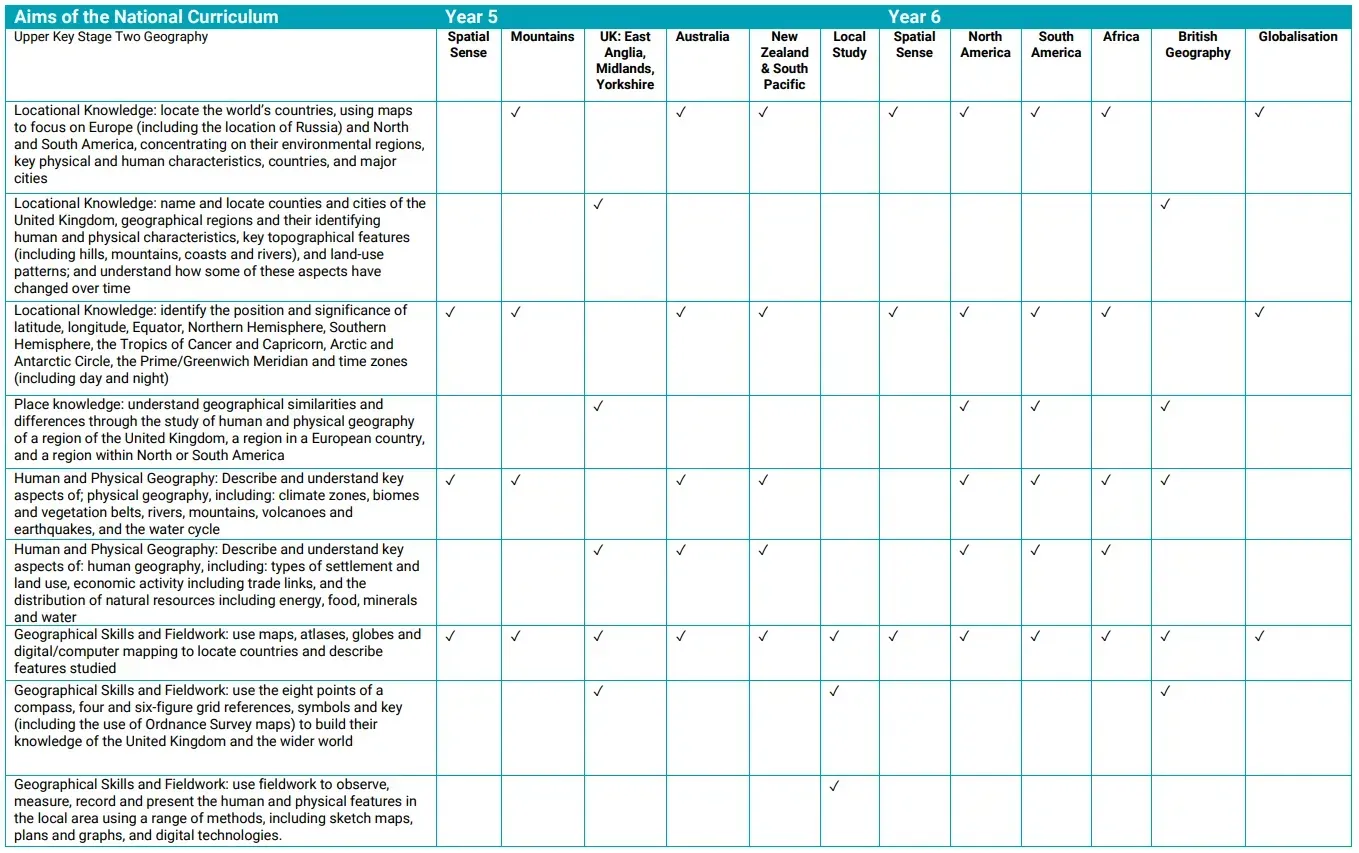
Geography
Rationale:
The Holme Geography curriculum is knowledge rich. This means the knowledge children will gain has been carefully specified, ordered coherently and builds over time. As children work through our geography curriculum they will know more, understand more about the world around them. A good geographical understanding relies on firm foundations of knowledge and skills. The skills our curriculum develops, like the knowledge, are specified, ordered coherently and progress over time. This curriculum structure helps pupils to deepen their understanding of physical and human geographical processes, fostering curiosity and fascination for the world we live in.
Approaching primary geography with a knowledge rich focus means that the knowledge children will be taught has been identified, in each year group, in each unit and in each lesson. As children work through the curriculum they will know more and understand more about their local area, the UK, Europe and the World. This rigorous approach, covering and going beyond the requirements of the National Curriculum, leaves nothing to chance, building geographical knowledge and understanding in a way that builds on children’s prior knowledge, allowing them to make meaningful connections and gain an understanding of how our world is connected.
Conceptual understanding is at the heart of our curriculum. Children will learn about key geographical concepts such as place, space, the environment and interconnection. Over time, working through an essential process of elaboration, children will add to their conceptual understanding with many examples of geographical knowledge in context. Children will become more skilled at answering questions such as; what is it like to live in this place? What are the challenges of this environment? How have people changed this landscape over time? Children will gain an understanding of what geographers do, what they look for and what they may say about a place. They will discover explorers such as Ibn Battuta, Roald Amundsen and Captain James Cook. They will look at the migration of both animals and people, studying the impact migration and colonialism had on places such as Australia and New Zealand.
Each year our geography curriculum begins with a ‘Spatial Sense’ unit that explicitly teaches geographical skills such as locating places on a map, positioning items on a map, using symbols in a key, interpreting scale, reading climate graphs, identifying locations using co-ordinates, interpreting population data, identifying elevation on relief maps and more. The spatial sense units for each year group are positioned at the beginning of the year to explicitly teach skills which will then be used in context throughout the rest of the year as children apply those skills to learn more about people, places and the environment. The spatial sense units build on prior knowledge before moving children on as the level of challenges increases from year to year. In Key Stage One the Spatial Sense units require children to undertake fieldwork and use observational skills to study the geography of their school and the surrounding environment. In Year 5/6, children will study a further unit on local geography where they undertake fieldwork to observe, record and present the human and physical features in the local area, focussing on an issue that the local area faces. The aim of the spatial sense units is to build children’s geographical literacy so that they are able to use an atlas, maps and geographical data with ease to answer questions they may have about the world.
Every year children will study at least one unit of British geography. As with the rest of the geography curriculum, children’s knowledge and understanding of British geography builds incrementally from year to year. Beginning with general understanding of the countries of the UK, children then study units that focus more closely on areas of the UK including the South West, the South East, Yorkshire and Humberside, the Midlands and Northern Ireland. When studying these areas, children look at the defining physical and human characteristics of the regions, key topographical features such as hills, mountains, coasts and rivers, how the landscapes and environments have formed over time and how they are used today.
Children will also study units of European geography that introduce regions of Europe, climate, trade, industry, landmarks, physical features and contrasting environments. Children will interpret a range of geographical information including maps, diagrams and climate graphs. Comparisons will be made between places in Europe and the local area. Areas studied include Mediterranean Europe, Eastern Europe and Western Europe. Studying Europe in detail will not only help children to understand the people, places and environment in the regions, but will provide foundational knowledge for their studies in other subject areas, for example their studies of the Vikings in History.
Alongside their study of the UK and Europe, children will extend their knowledge beyond these regions to study world geography. When studying world geography, children will focus on places such as North and South America, Asia, Africa, Australia, New Zealand and the South Pacific Islands. Applying their knowledge and understanding of the globe, latitude, longitude, the hemispheres and time zones, children will describe and understand physical geography of countries and continents including biomes, vegetation belts, rivers, mountains, volcanoes and earthquakes. They will consider a range of human geographical features such as settlements, land use, trade links and natural resources.
Our geography curriculum equips pupils with knowledge about diverse places, people and environments. We have seen that arming children with powerful knowledge about the world around them helps them to develop a love for the subject of geography, and also recognise their own role in becoming a responsible global citizen.
Implementation:
As a school we follow the National Curriculum 2014, and we supplement this with the Primary Knowledge Curriculum. We use a well structured long term plan that gives pupils the opportunity to build on prior learning repeatedly throughout their seven years here, making links across Geography, History, Science and Art. The children recall the information they have been taught in multiple lessons, which helps them to build links and feel confident to discuss and consider geographical facts and issues with confidence. We give the children many opportunities to experience Geography first hand through the use of outdoor areas in school as well as through trips and visits in our local area, enabling them to put their emerging skills as Geographers into practice.



Impact:
Our Geography curriculum is high quality, knowledge-based, well-sequenced and is planned to demonstrate progression. If our pupils have understood and retained knowledge from the carefully sequenced curriculum we have taught, we know that they are where they should be.
At Holme C of E Primary Academy, our children will have a secure knowledge and understanding about the world and will be able to make links and confidently discuss their geographical knowledge. They will be able to identify countries, continents, seas and oceans, and will be able to use geographical skills such as map reading and orienteering to help them explore our local area. Children at our school will understand the role of Geography in other subjects, such as History or Science, and they will be able to draw upon their knowledge of Geography to enrich their Literacy work and to extend their use of vocabulary. We will ensure that our children are equipped with geography skills and knowledge that will enable them to be ready for the curriculum at Key Stage 3 and for life as an adult in the wider world.
We want the children to have thoroughly enjoyed learning about geography, therefore encouraging them to undertake new life experiences now and in the future.
